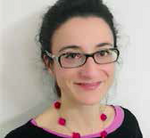Group 8: Soft Skills

Comparative Group 8: Soft skills as a tool for long-term employability in the adult education sector. The role of higher education institutions
Skills, employability, higher education
Since 1980s a very important role has been played by transferable/soft skills (i.e. skills that can be used in every life environment, such as listening, teamworking, …) and hard/technical skills (i.e. knowledge linked to a specific context). Skills have been studied deeply by re-searchers although the argumentation has brought mostly to the creation of nothing more than "wish lists" that do not have a concrete impact on the employability of stu-dents on a larger scale. Exceptions are the USEM model (Knight&Yorke 2004) and the employability oriented curriculum (Yorke 2006) that connect the curriculum, the ac-quisition of skills and capabilities and employability.
Recently a particular emphasis for the development of skills has been put on higher education institutions as contexts where competences and abilities can emerge (Knight&Yorke, 2002; Yorke&Knight, 2004; CBI, 2011) and become tools for the long-term employability of individuals.
In a cooperative learning setup, Master’s and PhD students will join a comparative workgroup focused on these themes, and will acquire collective problem-solving, team-building and communication skills by striving for a common goal. Moreover, they will be highly involved in a very valuable, engaging and productive learning experi-ence. The moderator will be responsible for the monitor-ing and supervision of the learning process in order to guarantee and improve the quality of the process. The moderator will be supported in this role by the co-moderator.
Comparative research question:
Which are the most important competences an adult educator should have in your country for being a professional? Are these competences developed at a higher education institutions level through the curriculum of the master degree courses?
Context of comparison:
The comparison will deal with the educational policies and strate-gies that are developed at a national level to foster the develop-ment of employability skills in young persons. These will be studied with a pedagogical perspective in order to understand which actions can be considered best practices in the higher education field.
At the same time the comparative group will focus the attention on the competences that are required to graduates in Adult Education from the Social Economy at a national level and that can ease the transitions from higher education to the local labour market.
Categories of comparison:
Considering that the groupwork will adopt the definition of Employ-ability as «a set of achievements – skills, understandings and personal attributes – that makes graduates more likely to gain employment and be successful in their chosen occupations, which be-nefits themselves, the workforce, the community and the economy» (Yorke, 2006), please focus on the following categories of ana-lysis:
- Professionalization will be considered a category because it represents a development path made of structural and non-structural factors (Egetenmeyer und Schüssler 2014). It is important for studying the individual approach to adult education as a labour context
- Soft Skills and competences for the acquisition of a professionalization that can ease the dynamic process towards adulthood and the design and management of educational actions. It will be important to focus the attention on the groups of soft skills that are considered fundamental to each educator and compare the differences at a global level.
- Higher education as the learning context where soft skills can be developed in a formal, non formal and informal way to ease the transition to the labour market.
References:
Boffo, V. (2015). ‘Employability for the Social Economy: the Role of Higher Education’. In Boffo, V., Federighi, P., Tor-lone, F. (2015). Educational Jobs: Youth and Employability in the Social Economy. Firenze: Firenze University Press, pp. 147-168; ICF GHK, Cedefop (2014). Employability and skills of higher education graduates. Analytical Highlight. Luxembourg: Publications Office of the European Union; Pegg A., Waldock J., Hendy-Isaac S., Lawton R. (2012), Ped-agogy for Employability. York: ESECT and HEA.
Dr. Gaia Gioli, University of Florence, Italy
Dr. Gaia Gioli, University of Florence, Italy earned her PhD at the Bergamo University Department of Education (17/03/2014); Gaia Gioli is PostDoc at the Department of Education and Psychology, University of Florence since 2014.Her current research activities are concentrated in three areas: 1) Adult education, the formation in and for the workplace, the study of transitions from education to labour market; 2) higher education and the study of actions to foster the development of employability through the curricula of studies; 3) internationalization of the research.


